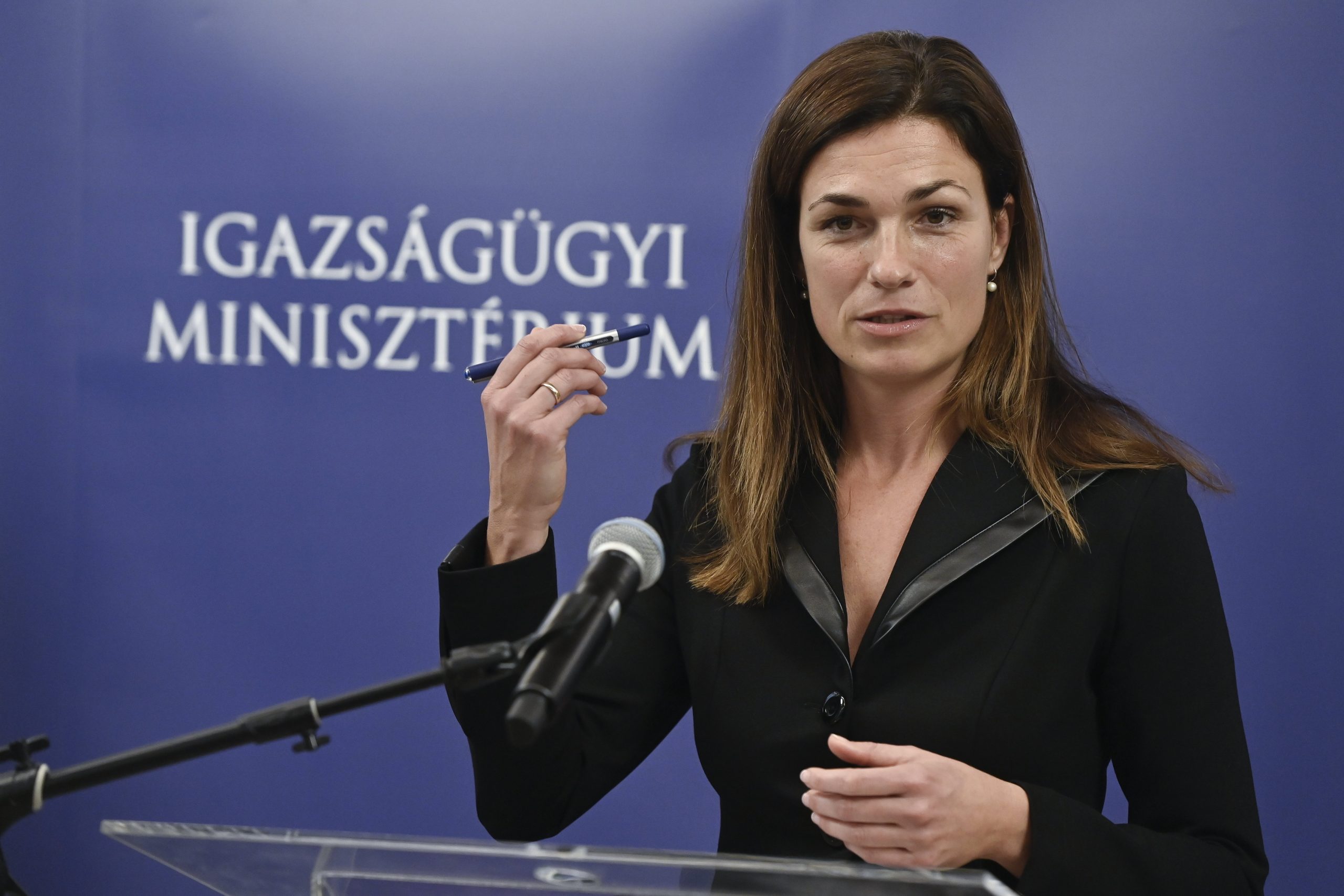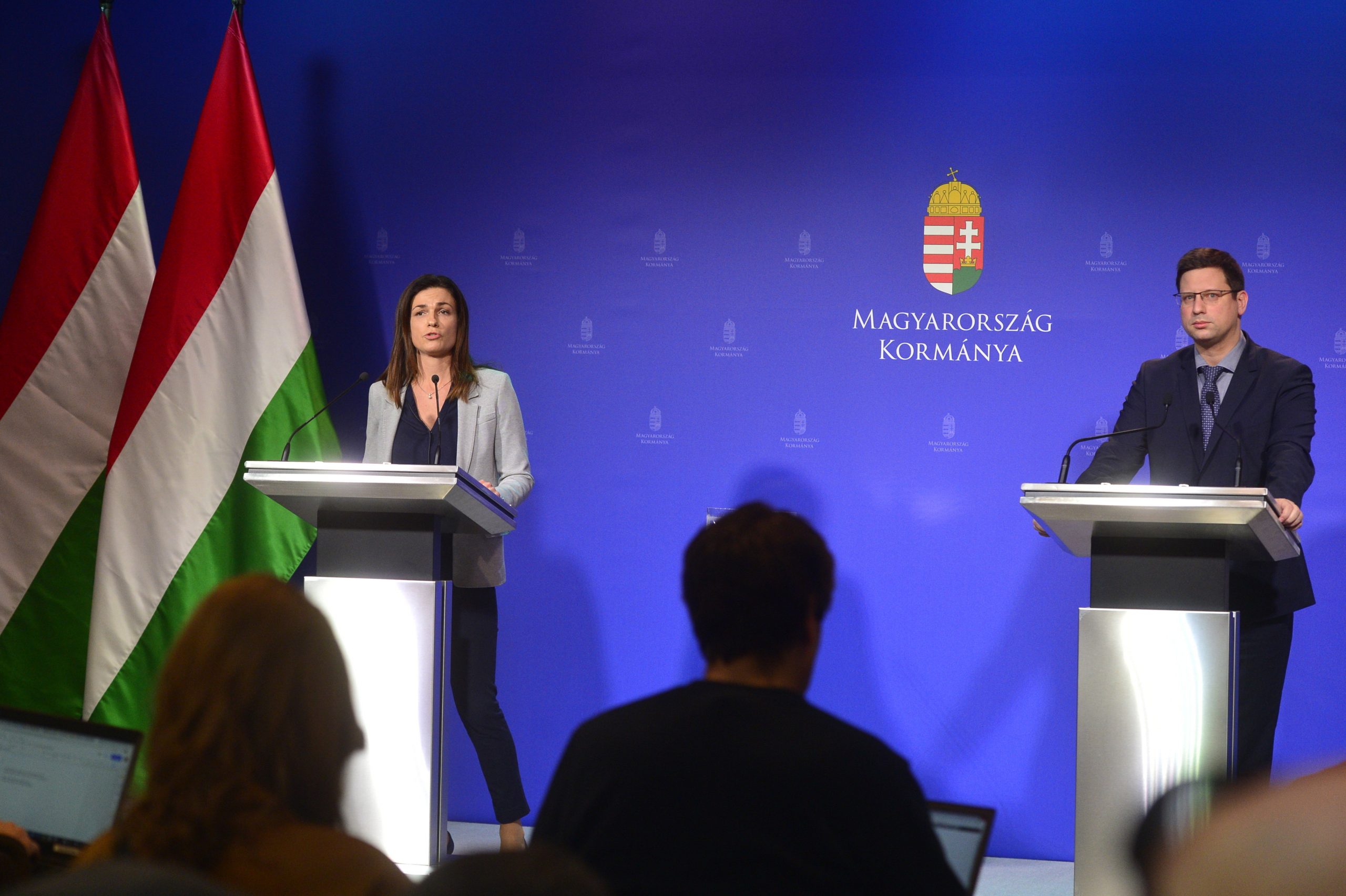
In her 58-page long explanation, Judit Varga argues why she believes the law, which the government initially called an anti-pedophilia law, should not be subjected to criticism.Continue reading

After the Court of Justice of the European Union rejected Hungary and Poland’s complaint that the EU may cut funds to member states that violate the rule of law, Justice Minister Judit Varga called the decision “politically motivated,” while Hungary’s ruling Fidesz party reacted by saying Hungary was being “stigmatized” over its child protection law.
In their reasoning, the CJEU noted that the procedure laid down in the resolution can be launched only when the breaches in question “affect or seriously risk affecting the sound financial management of the Union budget or the protection of the financial interests of the Union.” The regulation aims to protect the EU’s budget from harm incurred by breaches to the principle, and not at the protection of the principle itself, the CJEU said.
“Compliance by the Member States with the common values on which the European Union…such as the rule of law and solidarity, justifies the mutual trust between those States. Since that compliance is a condition for the enjoyment of all the rights deriving from the application of the Treaties to a Member State, the European Union must be able to defend those values,” according to the ruling.
Varga said in a Facebook post today that the decision “proves that Brussels is abusing its power … it is another way of putting pressure on Hungary for the amendments to its child protection law accepted last summer,” which the EU has called discriminative against the LGBTQ community.
Referring to a referendum on the child protection law on April 3, Varga said “Brussels cannot accept that Hungarians can have their say at a referendum. The bureaucratic elite refuses to accept Hungarians’ free decisions and opinions,” she said.
Hungary’s ruling Fidesz party reacted by saying Hungary was being “stigmatized” over its child protection law. It slammed the ruling as “the latest stage of a months-long campaign of political revenge” which had been “prepared in advance.”
“Brussels does not want to accept Hungary’s refusal to give in to pressure, that it passed a law to stop the LGBTQ propaganda targeting children and even called a referendum on the issue,” the party wrote in a statement. “That is why Hungary was sued, why this whole rule-of-law jihad was launched, and that is why they want to stigmatize, condemn, and punish our country.”
Commenting on the ruling, the Századvég Foundation said Hungary could not expect the findings of the European Commission’s 2022 Rule of Law Report “to be based on facts and reality and be free from political ideology and influence.” The EC is carrying on with its “series of intervention attempts,” as part of which they reprimand countries “that do not subscribe to the ideas of open societies,” the pro-government think-tank said in a statement.
“Judging by the Sargentini report and the rule-of-law country reports released in the past two years, the report due to be released this year cannot be expected to paint a positive picture of the state of democracy in our country, either,” Szazádvég said. “Instead, it can be expected to reflect the opinions of NGOs financed by George Soros as dictated by their patron, conforming to the left-liberal narrative of Brussels.”
The think-tank said EC representatives will be holding virtual talks with Hungarian stakeholders on February 28 and March 1 in order to gather information on Hungary for this year’s Rule of Law Report. Though they will also be reaching out to members of the government and right-wing players, “it is clear that they talk to significantly more stakeholders who are committed to open societies, and it is their views that will be reflected in the reports,” they added.
Századvég said it was likely that the report set to be released in July would make mention of the Pegasus spy software case, “in which no unlawful wiretapping has been proven.” The EC is also likely to reference Human Rights Watch’s annual country report on Hungary, the latest of which says the Hungarian government had continued “its attacks on the rule of law and democratic institutions” in 2021, Századvég added.
Head of Prime Minister’s office, Gergely Gulyás, said: “I would like to warn everyone not to overestimate today’s decision, but if you assess it correctly, Hungary considers the rule of law as a priority area, and that is why the Child Protection Act is so important. Hungary has had a bourgeois government for 12 years, and we are among the most successful countries in receiving EU funds: in this cycle alone, we have drawn EUR 4.5 billion in 2018, EUR 3.5 billion in 2019, EUR 4.5 billion in 2020, and EUR 4 billion in 2021. This money is not the nations’ money, it is our money. As long as Hungary has a bourgeois government, no money can be taken away from Hungary. This has also raised the stakes for the referendum.”
According to Gulyás, the cabinet chose a most democratic answer when it decided in favor of the referendum on the child protection law. “Hungary attaches the greatest importance to the fundamental values of the rule of law, and the Child Protection Act is a priority,” Gulyás said, adding that if the opposition candidate believed that “communists and fascists would come to power, this would certainly be incompatible with the fundamental principles of the EU.”
He emphasized that “We will never have a problem with the independence of the judiciary being questioned, but allowing or prohibiting the marriage of two men cannot be questioned.”
Gulyás stressed that while the government had reached an agreement with the European Commission, it was not signed just after the adoption of the Child Protection Law, so he believes that if “we repealed the law, the attacks would stop.”
Regarding public procurement, Gulyás acknowledged that the European Commission is justified in criticizing the high percentage of public contracts awarded by a single player, but they are committed to reducing this percentage.
When asked about the number of legal costs Hungary will have to pay due to the European Court of Justice ruling, Gulyás said it is a negligible amount, almost zero in economic terms.
Featured image: Judit Varga and Gergely Gulyás; via Attila Kovács/MTI